- 6,068
- 3,447
- 189

Mark Zuckerberg asks governments to help control internet content
- 30 March 2019
In an op-ed published in the Washington Post, Facebook's chief says the responsibility for monitoring harmful content is too great for firms alone.
He calls for new laws in four areas: "Harmful content, election integrity, privacy and data portability."
It comes two weeks after a gunman used the site to livestream his attack on a mosque in Christchurch, New Zealand.
"Lawmakers often tell me we have too much power over speech, and frankly I agree," Mr Zuckerberg writes, adding that Facebook was "creating an independent body so people can appeal our decisions" about what is posted and what is taken down.
He also describes a new set of rules he would like to see enforced on tech companies.
These new regulations should be the same for all websites, he says, so that it's easier to stop "harmful content" from spreading quickly across platforms.

What does Mark Zuckerberg want?
In brief, Mr Zuckerberg calls for the following things:
- Common rules that all social media sites need to adhere to, enforced by third-party bodies, to control the spread of harmful content
- All major tech companies to release a transparency report every three months, to put it on a par with financial reporting
- Stronger laws around the world to protect the integrity of elections, with common standards for all websites to identify political actors
- Laws that not only apply to candidates and elections, but also other "divisive political issues", and for laws to apply outside of official campaign periods
- New industry-wide standards to control how political campaigns use data to target voters online
- More countries to adopt privacy laws like the European Union's General Data Protection Regulation (GDPR), which came into force last year
- A "common global framework" that means these laws are all standardised globally, rather than being substantially different from country to country
- Clear rules about who's responsible for protecting people's data when they move it from one service to another
The site has also been criticised for failing to stop the spread of footage of the Christchurch killings, in which 50 Muslims died as they prayed.
The video was livestreamed to the attacker's Facebook page on 15 March, before being copied 1.5 million times.
Mr Zuckerberg's letter did not specifically name these incidents.

However, the site earlier announced that it was considering introducing restrictions on live-streaming in the wake of the Christchurch attacks. On Thursday, it also said that it would ban white nationalism and separatism from the site.
On Friday it also started labelling political ads appearing on Facebook in EU countries, showing who the advertiser is, how much they paid and who they've targeted.
"I believe Facebook has a responsibility to help address these issues, and I'm looking forward to discussing them with lawmakers around the world," Mr Zuckerberg says.
Source:-https://www.bbc.com/news/world-us-canada-47762091
